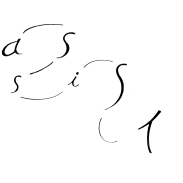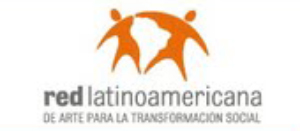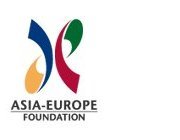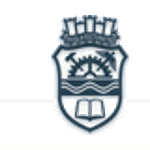

The first edition of ASSiST was organized as a collaboration between:


and in partnership with:


The first edition of ASSiST was supported by the Asia Europe Foundation (ASEF) as a follow-up project of the Dialogue on Arts, Culture & Climate Change (Beijing, 2008), and by the Municipality of Gabrovo.


Supporters and funders of individual workshops: Please see the „About" page on this web-archive.
Program timetable of the summer school (PDF)
Please see the video page for some videos.
Not only the ecosystems, but also human societies, i.e. social justice, democracy, cultural vitality and the welfare of citizens, are put at risk by the continuing trend of an unsustainable development: The challenge of achieving sustainability, in the face of a complex crisis of civilization combining ecological, social, cultural and economic dimensions, demands integrated understandings and responses. As the famous Einstein quote goes, “the problems of the present cannot be solved with the thinking that created them”. The atomized, specialized islands of knowledge and of practice in contemporary societies, shall be turned into a common ground from which responses to the global crisis may emerge. We argue that artists and scientists, in putting together their resources of inquiring and re-thinking, in an exchange with civil society, can make an important contribution in the coming decades, before climate change, biodiversity breakdown and other global phenomena would turn into a civilizational collapse. However, in order to do so, artists and scientists urgently need adequate places and moments where and when they can trespass disciplinary boundaries and the routines of their trade.
The Summer School hopes to address the issue of distance and lack of dialogue and cooperation between scholars/researchers, communities and arts practitioners. The Summer School is thus dedicated to the productive dialogue and mutual teaching/learning processes (with workshops given by each for the other) among all cultural practitioners and scholars engaged in change processes for sustainability. The process is expected to be one of mutual enrichment, which can lead to rethinking the opinions and work approaches of each group and of individuals and then get ramified in a series of new approaches to inspire projects in communities around the world.
The Summer School aims to encourage scientists and artists to transform their own working processes, thanks to the insights gained from the other participants. The Summer School is also expected to stimulate the inquisitiveness, the inter- and transdisciplinary openness and the critical reflexivity of participants, allowing them to confront the complexity of today’s global crises and unsustainable developments, with creatively and effectively integrated perspectives. Navigating through the insights of cross-disciplinary dialogues, the summer school participants will discover islands of common experience, on the way to a shared transdisciplinary common ground as the long-term destination of the summer school.
The Summer School will contribute to an understanding of the role of community spaces and organizations dedicated to the arts and how the work of these organization in national and international networks can create a dynamic of sustainable social transformations propelled by a widely spread creativity among generations and across intercultural boundaries.
An overarching theme is proposed for the first edition of the Summer School: Walking and Places: building transformations.
Walking, as a practice for exploring, learning, mapping, and intervening, in urban and in rural contexts, will be explored. This practice brings up insights highly relevant to the summer school’s focus on action-based research – and constitutes a field which has grown rather directly out of a relation to practice, rather than as a theoretical problem held by science for itself. Traditional as well as new ‘déambulation’ practices (e.g. in postmodern dance or among traditional pastoralist communities) mark the relationships between cultural practices and their social and ecosystemic environments. Furthermore, in the recent past, walking-based (re)search practices have flourished both in the arts and sciences (e.g. in contemporary art practices or in the new discipline of “Promenadologie”), opening up spaces for inter- and transdisciplinary explorations, which the summer school will further develop and interconnect.
Read more here for a background information on the theme (on Cultura21's wiki)...
The Summer School hopes to generate a high-quality learning experience for all participants, generating innovative methodologies, knowledge and agendas in art, (re)search and action. The vision is to create a framework for a truly creative process for the methodological empowerment of both artists and scientists working for sustainability/social transformation. The event will not merely be a collection of workshops and discussions, but a “school” in the noblest sense of the word: a place for learning, teaching, sharing and evolving together.
The Summer School addresses the HOW questions of art & science for sustainability: For example: How can academic research contribute to community artists and contemporary artists developing new social, aesthetic and community approaches? How can the experience of post-modern off-balance dance contribute to a rethinking of democracy? How can scientists enhance their reflexivity and their creativity thanks to insights from the arts? How can artists effectively work in communities and at other levels of social reality, for social transformation together with academics? In order to address these questions, the Summer School will explore: How do artists and scientists from a diversity of backgrounds, do their work today? Which methods and approaches do they use and how can these be transfered and transmuted to other artists and scientists around the world? And which cross-breedings between these different approaches should be further developed?
The Summer School will also foster thinking at a paradigmatic and normative level and link the WHY and the HOW questions, in order to avoid mere instrumentality. That ‘deeper’ level will address issues of spirituality, epistemology, ontology, aesthetics and introspection, and critically reflect the orientations and values we vest in ‘social transformation’ and in ‘sustainability’. Art and philosophy, conceived not only as vehicles, but also as possibilities to step outside ourselves, will contribute to this deeper, epistemological and ‘more than rational’ level of the Summer School’s methodology.
The Summer School aims to provide an intense and insightful learning experience to all participants, which is interdisciplinary, engaged and intercultural:
a) The Summer School aims to facilitate the cross-breeding of arts and sciences in their efforts to renew their methods and their paradigms towards social transformation for sustainability. It also aims to exchange these insights with organizations from civil society. Concerned are the fields of art and science in a wide sense, including on the one hand the whole spectrum of the academic world, from natural sciences and social sciences to philosophy and humanities, and on the other hand a wide variety of artistic practices, from eco-art and community arts practitioners to social sculpture, media art and others ; from the side of civil society practitioners, concerned are NGOs working in communities and for sustainable development. The summer school’s focus cuts across established disciplines, pursuing inter- and transdisciplinarity, but also affirms a proactive and normative, yet self-reflexive and critical framework.
b) The Summer School aims to train effective agents of change, not mere observers of contemporary crises nor uninvolved prophets of doom. The Summer School aims to foster social transformations towards a more sustainable civilization: i.e. resilient human cultures advancing social justice, economic well-being, ecological integrity and cultural diversity. It is intended for artists, researchers and practitioners who acknowledge and support the values of engaged (i.e. normative) and self-reflexive, concrete and theoretically informed, positive and critical practices in science, art and civil society.
c) The Summer School aims to facilitate transcontinental exchanges, comparisons and critical explorations of experiences across the world, with participation of researchers and practitioners from the continents of Africa, Asia, Europe, Oceania and South-, Central and North-America.
d) The Summer School aims to enable the conceptualization and drafting of possible future partnerships and projects among artists, scientists, and practitioners.
e) The Summer School aims to generate a transdisciplinary process allowing the pluralistic and diverse, yet united and overarching burgeoning of a transdisciplinary culture in the arts and in the sciences: